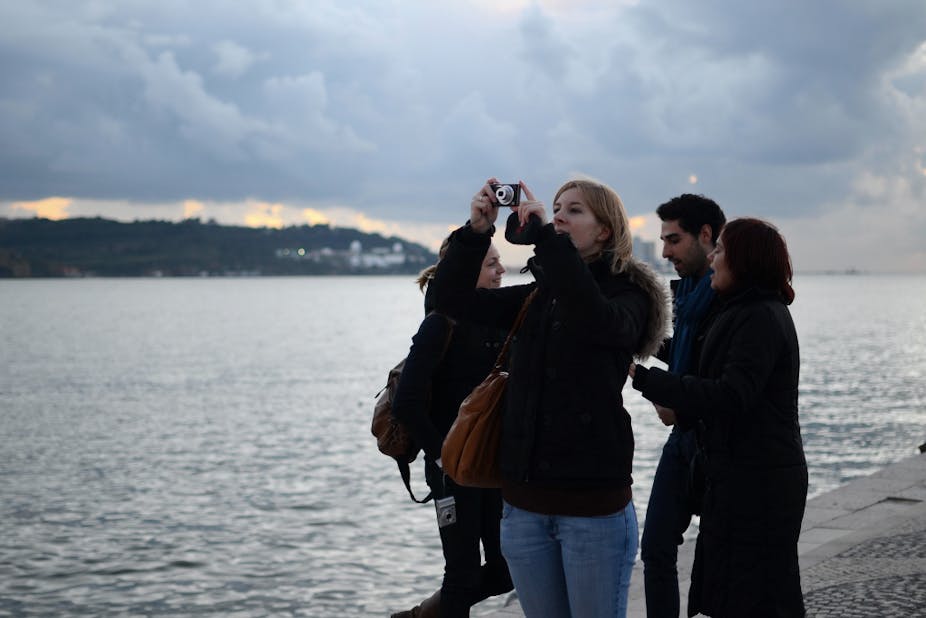As a wave of Eurosceptic feeling continues to spread across Europe, few voices are extolling the educational and cultural benefits of political union on the continent. Yet many of today’s young Europeans, as their ancestors did before them, see the European Union’s ability to widen their eyes to transnational forms of identity.
A 2015 survey by the Brussels-based think tank ThinkYoung found that what young people regard as “the most significant achievements of the EU” are “peace and stability in Europe and the right of EU citizens to travel, to live or study in another member state”.
The Erasmus student exchange scheme, through which EU students can spend time studying in another member state, is a precious tool towards the creation of a postmodern world. The late Italian scholar and writer Umberto Eco called our attention to the important role Erasmus plays within this process of Euro-integration, combining the educational dimension with other formative aspects of life:
The university exchange programme Erasmus is barely mentioned in the business sections of newspapers, yet Erasmus has created the first generation of young Europeans.
Part of a long tradition
I regard the Erasmus exchange as the latest stage in a process of European integration that started during the Middle Ages, when a number of young people expatriated to get a better education. For example, Archbishop of Canterbury, Thomas Beckett, studied law at the University of Bologna around 1145.
Modernity accelerated this trend and in the 16th century many children of the English aristocracy undertook journeys to Italy. This was necessary for the politics and diplomacy of the day: a cosmopolitan elite – with a firm command of foreign languages and customs – was needed to steer the country.
This phenomenon climaxed in the early modern period, with the inception of what the 17th century travel writer Richard Lassels would subsequently label the “Grand Tour” in his 1670 The Voyage of Italy.
As shown by the Grand Tour, a transcultural education – pivoting on living and studying abroad – is actually conducive to change and innovation. The history of British art and architecture would have been different without the cultural hybridisation this social phenomenon fostered. Even an everyday word such as umbrella was seemingly introduced into English by the 17th century English traveller Thomas Coryate after his journey to Italy.

The Grand Tour originated against the backdrop of a deeply divided Europe, due to the rift caused by the Reformation and the Anglican schism. These young British travellers, however, were also the target of an anti-cosmopolitan campaign that portrayed them as monsters who had discarded their originally pure identity to embrace foreign languages and customs, not to mention the potential contamination of Papism.
After 1688, the presence of a Jacobite diaspora contributed further to the idea that continental travel was a suspicious pastime for young people. According to the historian Jeremy Black, it was only after the Hanoverian succession of 1714 that the debate over the Grand Tour “was freed to a considerable extent from the religious and political context of the previous two centuries”.
A new generation
Like the Grand Tour, Erasmus exchanges are a laboratory in which we are experimenting with the future of Europe. Established in 1987, two years before the fall of the Berlin Wall, the Erasmus programme is now a major aspect – together with other non-European exchanges – of what we call the internationalisation of European universities.
But today, British students seem less enthusiastic than other young Europeans about taking up the opportunity to study abroad.
By placing the emphasis on the potential of Erasmus I do not mean to downplay the multiple economic and political difficulties facing the EU. While acknowledging the shortcomings of the EU, writing in 2014 the British historian Timothy Garton Ash defined Erasmus students as “the first generation to have enjoyed Europe as a single space of freedom, from Lisbon to Tallin and Athens to Edinburgh”. He invited them to make their voice heard and to be more passionately involved in the making of Europe.
Europe needs to think of itself as transcultural rather than simply multicultural. Instead of conceiving of identities as mutually exclusive, we need to regard them as permeable. We need to rediscover the beautiful and challenging complexity of our roots in the centuries that preceded the formation of nation states. And to do this we need the humanities; knowledge cannot simply be a passage to technological development and other forms of material progress. It must also foster critical thinking and curiosity and a renewed desire to explore the past in order to dig up tools that may better enable us to inhabit our present and build our future.
A form of “rooted cosmopolitanism” is possible – to borrow Kwame Anthony Appiah’s definition – and Europe can play a major role in exploring this new way of inhabiting the planet.
As an academic who coordinates four exchanges between Italy and the UK I can testify that the Erasmus programme has made a major contribution to the creation of a transnational European consciousness, fostering both language learning and the overcoming of cultural barriers.
Studying abroad is a great opportunity to learn by experience. When they come back from Erasmus, students are different. Living in a different country is a fundamental aspect of a Euro-education, so let us be brave and resolutely invest in the European project.

